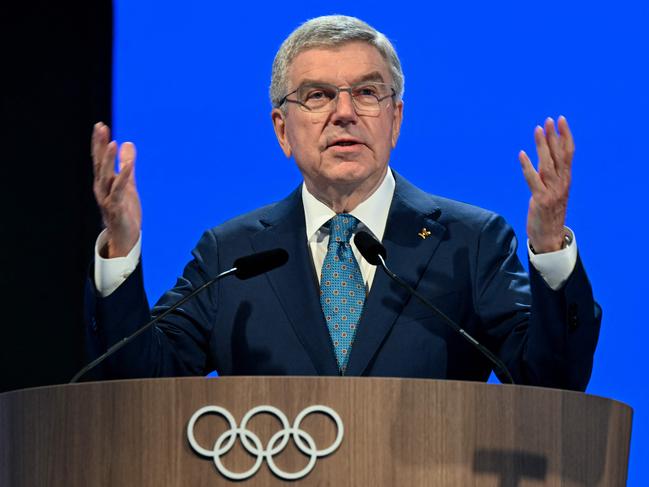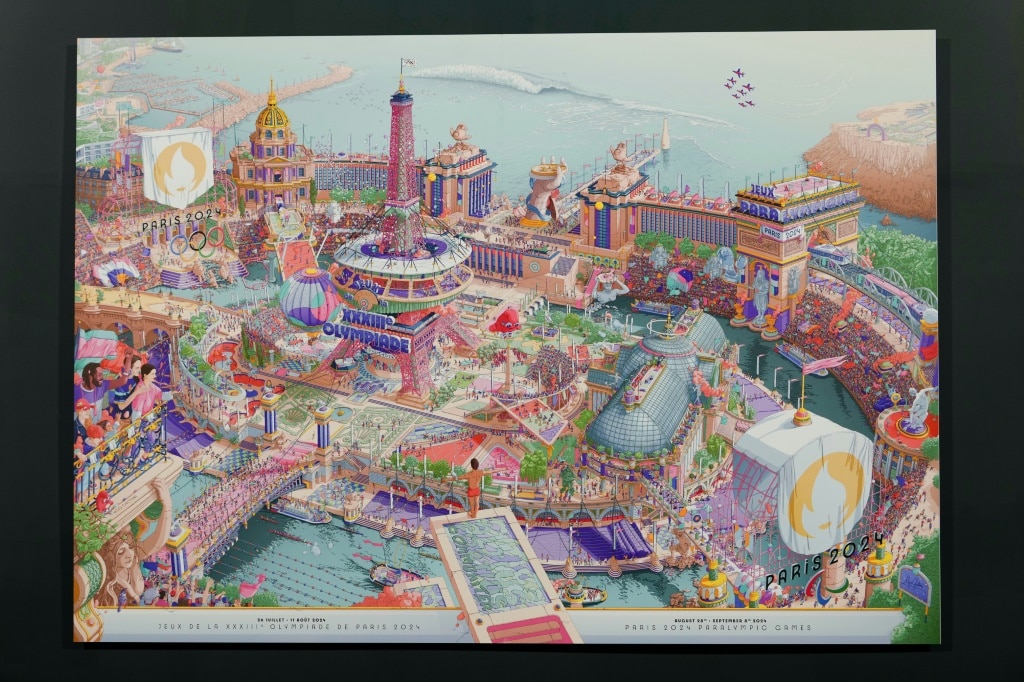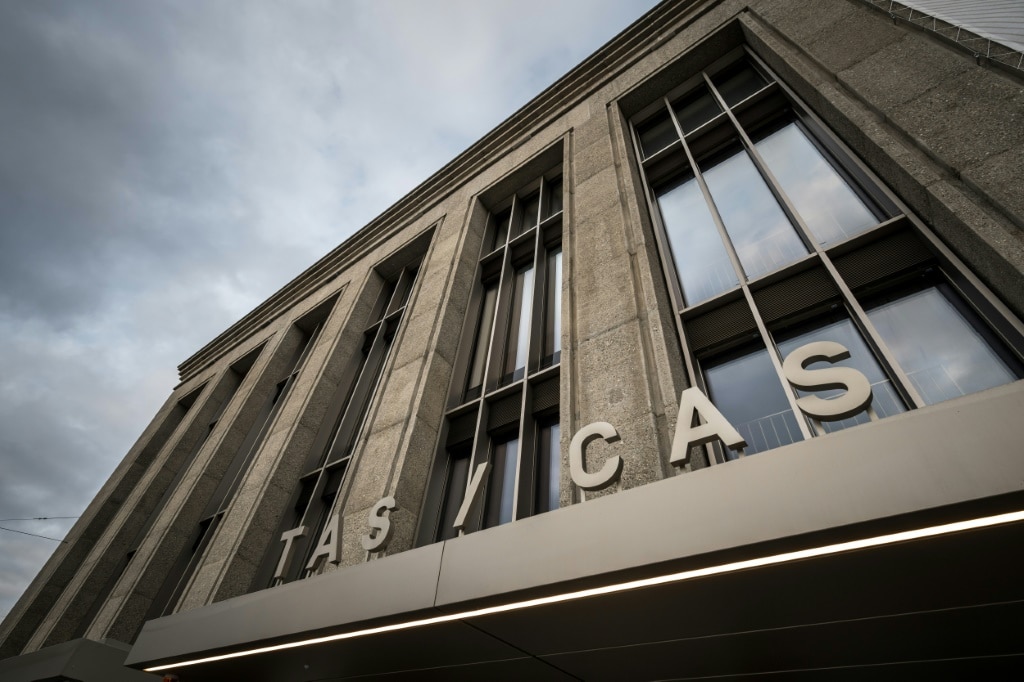Olympic boss Thomas Bach urges Ukraine to compete at the Paris Olympics
Olympic boss Thomas Bach is smoothing the way for Ukrainians, and non-politicised Russians, to compete at the Paris Olympics.

The International Olympic Committee received a timely endorsement of its suspension of the Russian Olympic Committee and its strict conditions on neutral Russian athletes competing in this July’s Olympic Games in Paris after a Court of Arbitration for Sport ruling this week.
And in an undisguised plea for Ukrainian co-operation following the ruling, the International Olympic Committee president Thomas Bach said on Wednesday that having Ukraine participate in the Paris 2024 Olympic Games will “make the world aware of their situation and their resilience”.
Mr Bach said from the Olympic headquarters in Lausanne the recent CAS ruling had found the IOC’s conditions for eligible Russian athletes – which essentially only allows for those who haven’t supported the war – were “fair and carefully calibrated to ensure that individual athletes are in fact politically neutral’’.
He said the global anticipation for the Paris Games was high.
“People are really fed up with all the hate, the aggression, violence they are faced with day in day out and in their hearts they’re all longing for a signal of hope or for some joy, for some excitement, to be part of something which they all which they all share,’’ he said.
Last October the IOC had suspended the Russian Olympic Committee after it attempted to include south east Ukrainian regions of Donetsk, Kherson, Luhansk and Zaporozhye under its authority. The IOC said this was a breach of the Olympic Charter because it violated the territorial integrity of the National Olympic Committee of Ukraine.
Russia took the issue to the CAS, but their argument that the suspension was different to the IOC’s actions in regards to conflicts in other territories such as Kashmir, Nagorno Karabakh and Palestine, was rejected.
The finding said: “The Panel wishes to repeat with emphasis that the issues in the present case are not whether, as a matter of international law, Russia’s annexation of part of the Ukraine was lawful or where the lawful boundary lies between the two. These issues raise questions of sovereignty and politics and cannot and should not be resolved by IOC or CAS or national courts.”
In the meantime Ukrainian athletes have been attempting to qualify for the Games through the various sport’s qualifying procedures despite the Ukraine president Volodymyr Zelensky repeatedly objecting to having Russians at the Games.
He has previously threatened to withdraw Ukrainian athletes if the IOC’s position doesn’t change.
However Mr Bach said: “I’m very confident that the qualification and participation will go smoothly.”
He said athletes can have an opinion as long as the rules are respected.
“I think everybody will realise the opportunity this is giving to the athletes and the National Olympic Committee of Ukraine to make the world aware of their situation or their resilience by appearing there with a strong and successful team during the Olympic and Paralympic Games in Paris,’’ Mr Bach said.
Mr Zelensky has objected about any Russian involvement at the Games, saying it would be a symbol of “violence and impunity.” In February he argued: “This cannot be covered by so-called neutrality or a white flag. Russia is now a country that stains everything with blood – even the white flag.”
As for the conflict in Gaza, Mr Bach said the IOC was supporting both the national Olympic committees of Palestine and Israel. He also confirmed that there would be no restrictions on the participation of Israel or Palestinian competitors at the Games and that Israel, as usual since the Munich massacre in 1976, would have special protections.
“They (Israel and Palestine) are both facing their own challenges and we are supporting them both according to their needs as much as we can,’’ he said, adding that some qualification placements may be offered to Palestine once the qualifying period is complete.
Mr Bach is due to stand down as IOC president in 2025 after serving a 12 year term, but on Wednesday he again refused to rule out staying on in the position – which would require a change to the IOC charter.
He said: “This is not a matter of public discussion. The respect for the IOC members requires that these discussions are happening with them first, and then everybody else will be informed.”








To join the conversation, please log in. Don't have an account? Register
Join the conversation, you are commenting as Logout